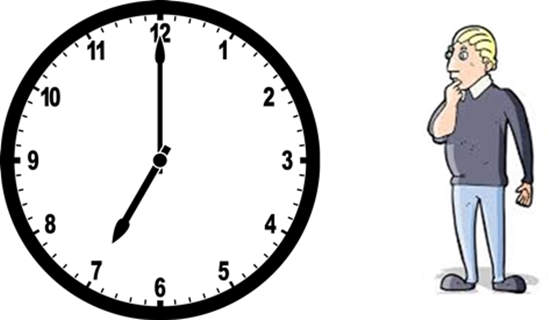
The Chinese company ByteDance owns the popular quick-vid platform TikTok. ByteDance and TikTok safeguard the data of U.S. users and do not share information with the Chinese government. We know this because TikTok says so.
In 2021, Michael Beckerman, TikTok’s head of public policy for the Americas, testified before the United States Congress. When a senator asked him if TikTok would be able to resist giving user data to the Chinese government if the Chinese government were to insist, Beckerman said, “We do not share information with the Chinese government.”
This sounds definitive.
It doesn’t really answer the question of what TikTok would do if the Chinese government were to request user data from TikTok and, having many ways to insist and being willing to insist, went so far as to insist.
Nevertheless, the statement “We do not share information with the Chinese government” sounds like a flat, immutable dictum, valid for all time, dependable, sturdy, solid, a company policy that could survive the heat death of the universe. It is very reassuring. Good. Good. TikTok does not share data with the Chinese government. Wonderful.
What makes this happy steadfastness possible? Perhaps ByteDance and TikTok subsist in a kind of impenetrable pocket or bubble in the space-time continuum that protects them from any instances of tyrannical insisting or other incursions. Perhaps, secure within the confines of this exotic bubble, the Beijing-based company can do whatever it pleases, answerable only to conscience and customers, without reference to and without deference to governments and political parties except insofar as ByteDance perceives it to be advisable to testify before the U.S. Congress.
Associated Press reports that in early 2023, TikTok CEO Shou Zi Chew told congressmen: “ByteDance is not an agent of China or any other country” (“TikTok CEO grilled by skeptical lawmakers on safety, content,” March 23, 2023).
Nevertheless, the company has been dogged by claims that its Chinese ownership means user data could end up in the hands of the Chinese government or that it could be used to promote narratives favorable to the country’s communist leaders.
In 2019, the Guardian reported that TikTok was instructing its moderators to censor videos that mention Tiananmen Square and included images unfavorable to the Chinese government. The platform says it has since changed its moderation practices.
According to the cited Guardian article:
TikTok, the popular Chinese-owned social network, instructs its moderators to censor videos that mention Tiananmen Square, Tibetan independence, or the banned religious group Falun Gong, according to leaked documents detailing the site’s moderation guidelines.
The documents, revealed by the Guardian for the first time, lay out how ByteDance, the Beijing-headquartered technology company that owns TikTok, is advancing Chinese foreign policy aims abroad through the app.
The revelations come amid rising suspicion that discussion of the Hong Kong protests on TikTok is being censored for political reasons: a Washington Post report earlier this month noted that a search on the site for the city-state revealed “barely a hint of unrest in sight”.
Okay, maybe TikTok has censored on behalf of the Chinese government. But this doesn’t mean that TikTok has ever given user data to the Chinese government! These are two different things, and it is possible to convict oneself in the eyes of all rational persons with respect to the one thing while being utterly innocent of the other.
AP reports that “TikTok, which has over 150 million American users, is a wholly owned subsidiary of Chinese technology firm ByteDance Ltd., which appoints its executives.” Just FYI.
Also FYI, in 2021, Reuters reported that “Beijing takes stake, board seat in ByteDance’s key China entity.”
Beijing ByteDance Technology sold a 1% stake in an April 30 deal to WangTouZhongWen (Beijing) Technology, which is owned by three state entities, the media outlet said, citing Tianyancha, an online database of China’s corporate records.
The deal also allowed the Chinese government to appoint a board director at Beijing ByteDance, it added, attributing it to two people with knowledge of the arrangement.
Reassuringly, though, AP also reports that according to Foreign Ministry spokeswoman Mao Ning, the Chinese government would never ask any companies to “collect or provide data, information or intelligence” held in foreign countries.
It’s just not the kind of thing China would ever do, Ning natters.
It is hard to know everything, and perhaps Ning is unacquainted with China’s National Intelligence Law of 2017, which “states that ‘any organization’ must assist or cooperate with state intelligence work,” or with the Counter-Espionage Law of 2014, which states that “ ‘relevant organizations…may not refuse’ to collect evidence for an investigation.”
According to a Department of Homeland Security report, this 2017 law
forms the baseline of [China’s] modern data collection regime, and compels all PRC firms and entities to support, assist, and cooperate with the PRC intelligence services, creating a legal obligation for those entities to turn over data collected abroad and domestically to the PRC. Article 7 of this law states “any organization or citizen shall support, assist and cooperate with the state intelligence work in accordance with the [National Intelligence] Law, and keep the secrets of the national intelligence work from becoming known to the public.” A PRC intelligence agency may request that any PRC firm or entity secretly share access to a U.S. business or individual’s data, or otherwise face penalties.
So any organization based in China “shall” help with intelligence gathering if the Chinese government asks. And must also “keep the secrets of the national intelligence work from becoming known to the public.” Is there another provision in Article 7 that says “unless you are asked about these secrets in a congressional hearing”?






